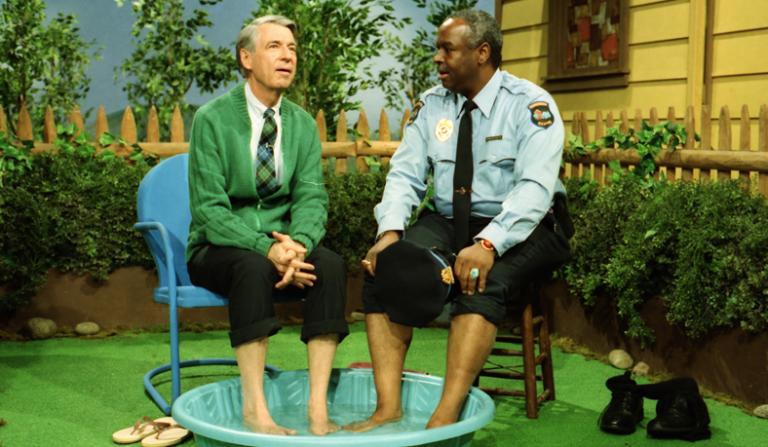
He was gentle, but strong. In Neighbor, we see scenes aplenty when Rogers’ famous gentleness was mocked and lampooned. And indeed, his ultra-sincere persona and curious, almost lyrical-sounding voice can foster a very Rogers-esque stereotype of a milquetoast man. Truth is, he was anything but. He stood for things and, once he found his footing, never wavered from them. He stared down congress. He fought for racial equality. The very first week Mister Rogers’ Neighborhood was on the air, according to Neighbor, Rogers tackled the Vietnam War.
Today, we see politicians and pundits bluster and blow like big, bad wolves—huffing and puffing, bellowing and retracting what they just bellowed. Rogers did Theodore Roosevelt one better: He spoke quietly, and instead of carrying a stick, he bore only his convictions. And so often, they were enough.
He was real. We’ve witnessed a lot of heroes fall lately. TV stars, politicians, even religious leaders have illustrated how wide the gap can be between a public persona and who a person is, deep down.
We all have inconsistencies to our characters, of course. We sin. We fail. We think or say or do things we should not. All of us do. Even, I’m sure, Mister Rogers. But everything I’ve read about him—and what I see in Neighbor—suggests that Rogers was as true to, and as honest with, himself, and thus to his audience, as anyone can be. He didn’t just pretend to listen: He listened. He didn’t just pretend to care: He cared. Tom Junod’s 1998 Esquire profile of Rogers illustrates that really well, and it might be one of the best profiles I’ve ever read. (caution, though. It can be profane at times.)













